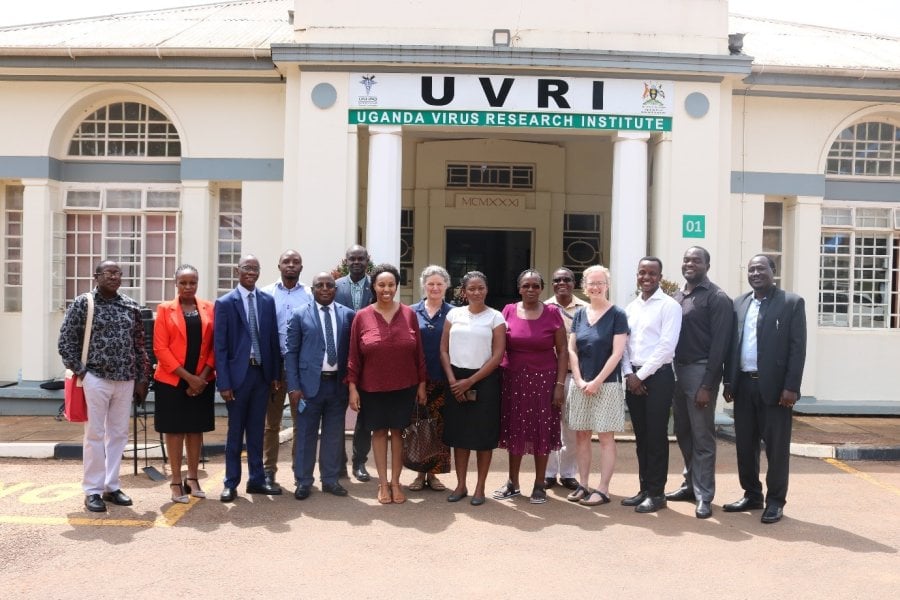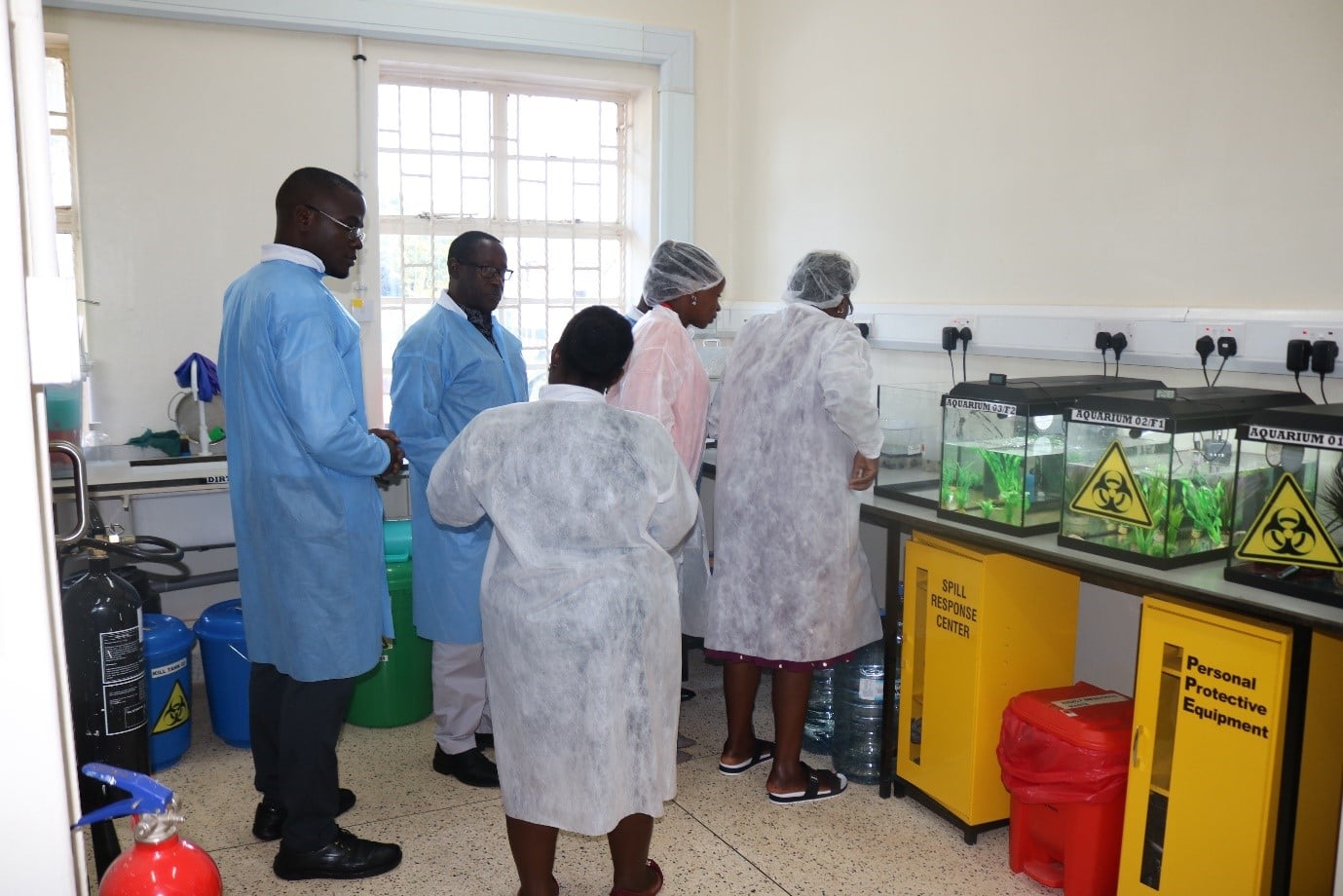
With funding from the National Institutes of Health (NIH), the Unit has partnered with the Uganda Virus Research Institute (UVRI) and other local and international partners to launch a novel platform for comprehensive research in Bilharzia, a major neglected tropical disease, estimated to affect 240 million people worldwide, 90% of whom reside in sub-Saharan Africa.
Unveiled on 20th June 2022 at the UVRI in Entebbe, the Uganda Schistosomiasis Multidisciplinary Research Center aims to enhance expertise and understanding of the underlying biological determinants of severe schistosomal disease to identify appropriate interventions for prevention and management of Bilharzia.
In addition to three PhD studentships in immunology, schistosome genetics and snail biology, the platform will strengthen scientist capacity in scientific writing, grant writing, science journalism, policy analysis, media, public and community engagement, with the aim of reinforcing efforts to address the high rates of severe Bilharzia in the North-Western Lake Albert region (LA), identified by the Vector Control Division (VCD) of the Ministry of Health as a long-term concern.
Dr Alfred Mubangizi, the Assistant Commissioner, Vector Borne and Neglected Tropical Diseases at the Ministry of Health, in his remarks emphasized the fact that despite comparable transmission and programmes of mass praziquantel drug administration, the region remains highly vulnerable to Bilharzia. He applauded the team for mobilizing joint partnerships to end Neglected Tropical Diseases and stressed the Ministry’s support for the new center.
“I am really impressed by the work you are doing as far as research on schistosomiasis elimination is concerned. With the involvement of VCD, I am confident that findings and recommendations will be implemented”,
Dr Alfred Mubangizi. Asst Commissioner, MoH
Well established facilities in the Unit snail laboratory, which are currently facilitating a Controlled Human Infection Study on Schistosoma mansoni (CHI-S) will provide key lessons and best practices to boost both research studies and capacity building interventions carried out at the new bilharzia research center.
The five-year strategic plan of the Uganda Schistosomiasis Multidisciplinary Research Center will also benefit from strong research collaborations between acclaimed research institutions including the Unit, UVRI, the VCD, and well established academic institutions namely Makerere University, Mbarara University, Johns Hopkins University School of Medicine and Public Health (JHU, USA), the Leiden University Medical Centre (LUMC, The Netherlands), University of Cambridge (UK), University of Glasgow, Liverpool School of Tropical Medicine (LSTM, UK) and the Royal Museum for Central Africa (RMCA, Belgium).
LSHTM's short courses provide opportunities to study specialised topics across a broad range of public and global health fields. From AMR to vaccines, travel medicine to clinical trials, and modelling to malaria, refresh your skills and join one of our short courses today.

